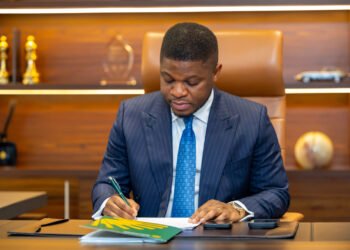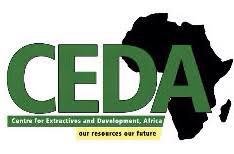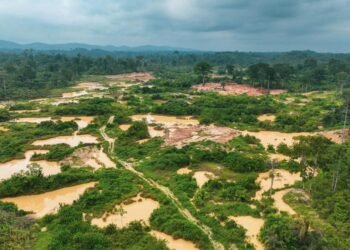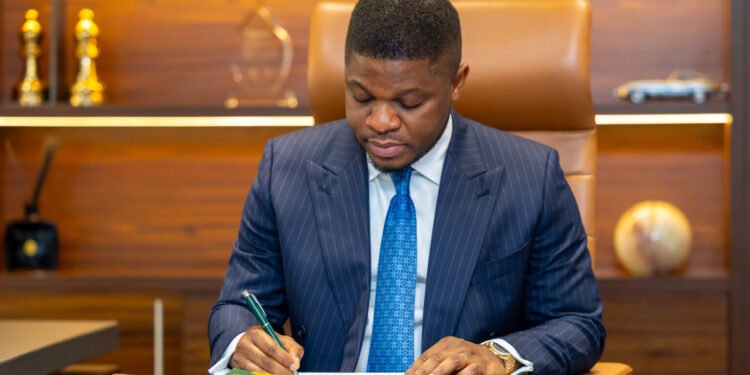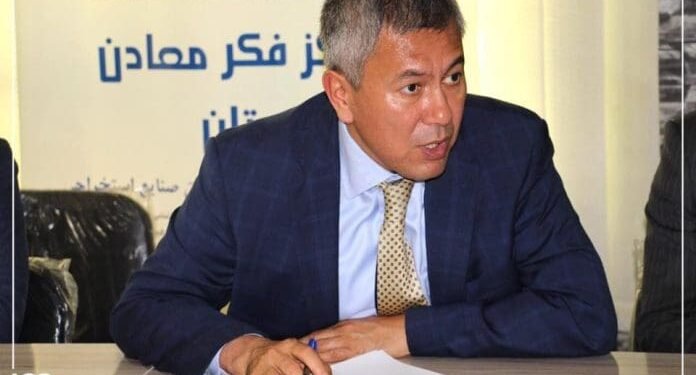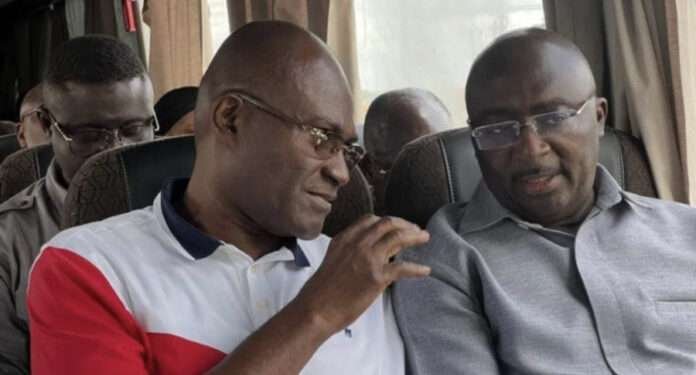During the ongoing Africa Mining Indaba in Cape Town, Mr. Martin Kwaku Ayisi, Chief Executive Officer of Ghana’s Minerals Commission, contributed to a panel discussion on the theme, “Advancing Green Technologies, Energies, and Information in Africa: A Collaborative Approach.”
The session focused on the continent’s strategic response to the global shift towards clean energy and sustainable resource management.
In his remarks, Mr. Ayisi emphasized the pivotal role of lithium in the clean energy dialogue, identifying it as a critical mineral for advancing green technologies.
As nations worldwide accelerate efforts to reduce carbon emissions, lithium has emerged as a key component in the production of batteries for electric vehicles, renewable energy storage, and other clean energy applications.
“Lithium is not just a mineral; it is a catalyst for the energy transition.
“For resource-rich African nations, the challenge lies not only in extraction but in harnessing its full potential to drive sustainable development.”
Mr. Martin Kwaku Ayisi, CEO of Ghana’s Minerals Commissio
Highlighting Ghana’s sole lithium mining agreement with Barari DV Ghana Limited, Mr. Ayisi outlined the country’s forward-thinking strategies in managing emerging and transition minerals.
He explained that the agreement goes beyond the traditional model of mineral extraction, incorporating mandates that ensure value addition and local economic benefits.
“In the case of our lithium agreement, the mining leaseholder is not just required to extract the mineral.
“They are also mandated to construct a processing facility within Ghana.”
Mr. Martin Kwaku Ayisi, CEO of Ghana’s Minerals Commission
This requirement, he emphasized, is aimed at creating additional employment opportunities along the mineral’s value chain and fostering local industrialization.
By insisting on in-country processing, Ghana seeks to maximize the economic benefits of its mineral wealth, reduce dependency on raw material exports, and develop technical expertise within the country.
Another critical aspect of Ghana’s approach is ensuring meaningful Ghanaian involvement in the mining sector.
Mr. Ayisi highlighted the role of the Mineral Income Investment Fund (MIIF), Ghana’s mining sector sovereign wealth fund, in securing shareholding participation in mining projects.
“The MIIF’s participation ensures that the benefits of our natural resources are not just confined to corporate balance sheets but are shared with the Ghanaian people,”
Mr. Martin Kwaku Ayisi, CEO of Ghana’s Minerals Commission
This strategy aligns with Ghana’s broader goal of achieving inclusive growth and ensuring that natural resource wealth contributes to long-term national development.
In addition to local ownership, Mr. Ayisi noted that the mineral royalty rate for lithium has been increased from 5% to 10% under the new agreement.
This adjustment reflects the government’s commitment to securing fair economic returns from the country’s mineral resources.
Pan-African Collaboration for Lithium Mining
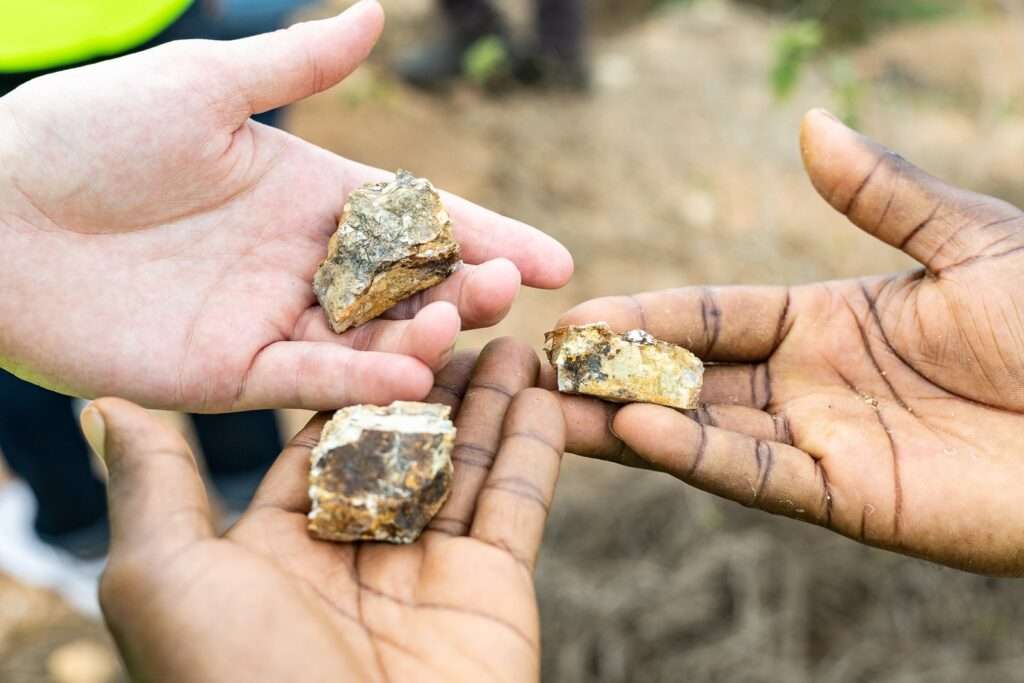
Mr. Ayisi urged resource-rich African countries to strengthen their collaboration as they navigate the complexities of managing transition minerals like lithium, cobalt, and rare earth elements.
“No country can go it alone in this rapidly evolving landscape.
“African nations must adopt new approaches, share best practices, and align policies to enhance their bargaining power in the global minerals market.”
Mr. Martin Kwaku Ayisi, CEO of Ghana’s Minerals Commission
He highlighted the importance of regional partnerships in areas such as technology transfer, research and development, and infrastructure development to support the growth of sustainable mining practices across the continent.
As the global demand for transition minerals rises, concerns about the environmental and social impacts of mining operations have become more pronounced.
Mr. Ayisi acknowledged these challenges and stressed the need for responsible mining practices that prioritize environmental stewardship and community well-being.
He called for the adoption of advanced technologies that minimize environmental degradation, promote resource efficiency, and ensure the rehabilitation of mined areas.
Ghana’s mining policies, he explained, are increasingly focused on balancing economic growth with environmental sustainability, aligning with international best practices and the country’s commitments under the Paris Climate Agreement.
Mr. Ayisi highlighted the potential for collaboration with global stakeholders, including governments, private sector innovators, and research institutions.
“Our engagement with international partners should not be limited to resource extraction.
“We must collaborate on research, innovation, and the development of green technologies that can transform the mining sector.”
Mr. Martin Kwaku Ayisi, CEO of Ghana’s Minerals Commission
He cited Ghana’s ongoing partnerships with countries and institutions involved in clean energy research and sustainable mining technologies as examples of how such collaborations can drive progress.
As the demand for critical minerals like lithium continues to surge, Ghana is positioning itself as a leader in sustainable resource management and green technology development.
Through innovative policies, strategic partnerships, and a commitment to inclusive growth, the country aims to harness its mineral wealth to drive economic transformation while contributing to the global fight against climate change.
READ ALSO: Sweden To Tighten Gun Laws




